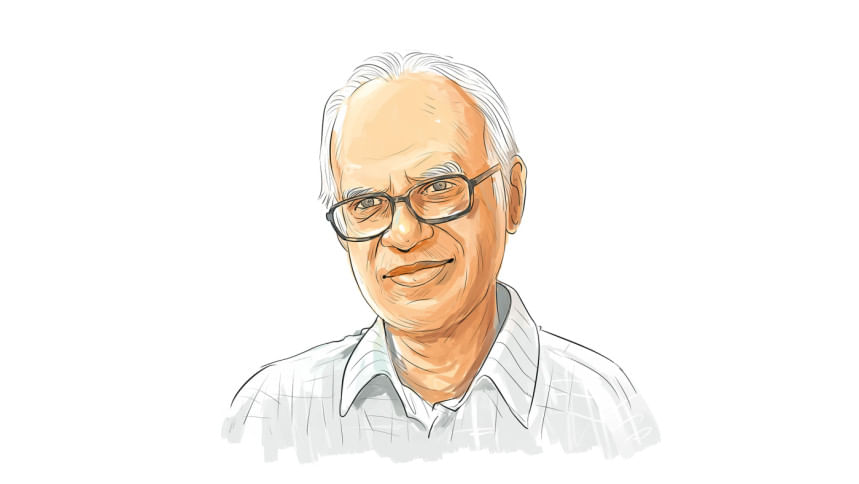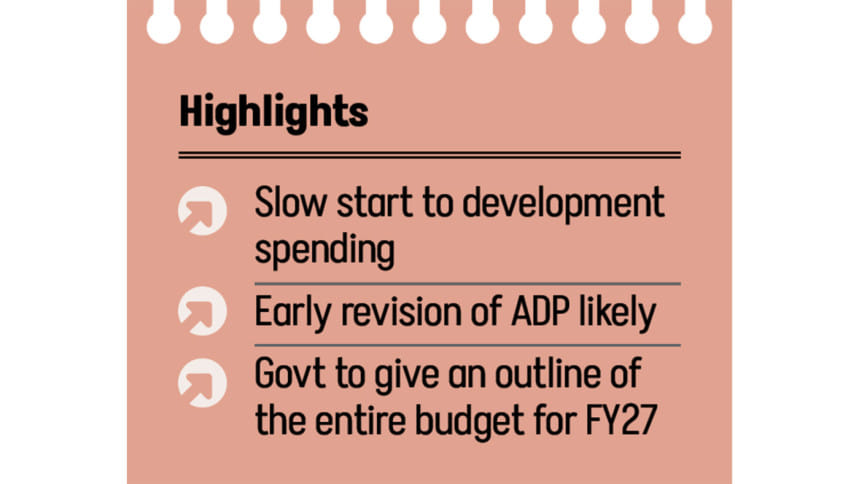July development spending below 1%

Development spending saw a sluggish start this fiscal year, as the expenditure stood below 1 percent of the total allocation at the end of July -- a sign that irked Planning Adviser Prof Wahiduddin Mahmud.
"This is not a good sign," he told a press briefing at the planning ministry after a meeting of the Executive Committee of the National Economic Council (Ecnec) yesterday.
Project implementation was delayed due to various reasons last year. But this year, things should be moving fast, he said.
"Last year's excuses should no longer come," the adviser added.
He said the situation was particularly concerning because this year's Annual Development Programme (ADP) was deliberately set at a "realistic" level to ensure implementation.
"That is our goal," he said.
This time, we are thinking especially about the upcoming election in February. So, we aim to provide the RADP in December or January.
Mahmud acknowledged that many projects were faced with disruptions, as new contractors were yet to be appointed in several cases. Many project directors have either been transferred or replaced, too, he said.
And this may be a reason for the sluggish progress, he said.
Mahmud urged all ministries to ensure that projects move forward, with no further excuses.

DELAYED REVISION OF ADP
The planning adviser said one of the persistent weaknesses in Bangladesh's planning process was the delayed revision of the ADP.
The revised ADP (RADP) usually comes in March or April, when it becomes clear that some ministries have failed to utilise allocations while others have already exhausted theirs.
"This time, we are thinking especially about the upcoming election in February. So, we aim to provide the RADP in December or January," he said.
"For that, of course, we will need an outline of the entire budget. Without an overall budget outline, it is impossible to determine how much can be allocated for annual development," said Mahmud.
At a minimum, the full budget should be outlined before the newly elected government assumes office, he said at the press briefing.
Mahmud also spoke about the projects approved at yesterday's meeting.
Some 11 projects involving Tk 9,362 crore got approval. Of those, five are new, three saw revisions with a rise in cost, while three others were granted deadline extensions without an increase in cost.
Of those, the "Environmentally Sustainable Water Supply" project, launched in 2014 by Dhaka Water Supply and Sewerage Authority, got a time extension. The project cost rose to Tk 13,824 crore, up by over Tk 2,800 crore.
Along with cost overruns, the project has faced repeated delays, raising concerns.
Mahmud said they discussed the issue of cost spiral and delays, and gave the nod to the time extension on condition that the Implementation Monitoring and Evaluation Division (IMED) conduct a study.
"The aim is to identify why the project has been delayed, what irregularities occurred, and why revisions and cost hikes are so frequent, so that lessons can be applied to future projects," the planning adviser said.
He said irregularities and poor planning might be the reasons. "Otherwise, completion should not take this long. There also seems to be a lack of coordination," he said.
Apart from this, there are some other issues.
Depreciation of the taka against the dollar, rising land acquisition costs, expansion of project areas, and a rise in interest payments have contributed to the cost overrun, as per the project documents.
The devaluation of taka solely increased the project cost by around 42 percent or Tk 1,186 crore.
When the government approved the project in September 2013, each US dollar was at Tk 82. The exchange rate has now risen to around Tk 120.

 For all latest news, follow The Daily Star's Google News channel.
For all latest news, follow The Daily Star's Google News channel. 



Comments